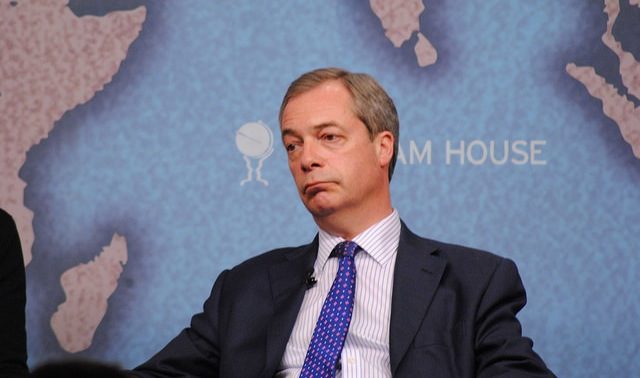
Success in the Clacton by-election is the latest step in what looks like an unstoppable march to power and influence by Nigel Farage and his eurosceptic United Kingdom Independence Party (UKIP). In Britain, we now have a successful breakaway political party on the right which makes the 2015 General Election and every by-election leading up to it volatile and dangerous for the two main parties who will be fighting for power.
While UKIP poses the greatest threat to the Conservatives, it is also taking votes away from Labour. Although its vote held in the Heywood and Middleton by-election Labour won the seat by the skin of its teeth. Nowhere is safe, it seems.
Recent research from the Fabian Society suggests that UKIP can damage Labour badly in 2015 by taking away its ‘blue collar’ support. Some in the Party have been arguing for a ‘Blue Labour’ agenda to win back those votes, based on ‘faith, flag and family’, and the Fabians argue that immigration must be put at the foreground of Labour’s policies for the election.
The Tories were warned by Teresa May in 2002 that they were perceived as the ‘nasty’ party and needed to divest themselves of that image if they were ever to win power again, and David Cameron was seen as the leader to do that for them. But there was always an element within the party and its traditional support that identified with that ‘nasty’ agenda — opposing the liberal consensus that emerged in the ‘noughties’ – and UKIP has exploited that.
As the two main parties fought over the centre ground, UKIP emerged as the new ‘nasty’ party and Cameron has been wrong-footed. Even Boris Johnson, who boasted of his pro-immigration credentials this time last year and has argued for an amnesty for illegal immigrants, has changed direction and is now making UKIP-type noises.
Cameron’s response is to put the EU and immigration back on the Tory agenda, promising a referendum on the United Kingdom’s EU membership in 2017, and stating that he will be a tough negotiator with the EU leading up to that referendum. Even the principle of EU freedom of movement is up for negotiation, according to Cameron. The reality, of course, is that Cameron has a credibility problem. While the EU may be up for some kind of ‘emergency brake’ on internal migration if it is destabilizing economies, UKIP supporters want more and Cameron has promised more. As so often, the pledges made on immigration in order to win public support are probably undeliverable.
There’s another issue that both Labour and the Conservatives have to take into account in trying to win back their UKIP defectors. In adopting policies on immigration and other social issues that will appeal to those voters they risk alienating others, especially Labour. In winning back some of those ‘blue collar’ votes how many of its supporters on the Liberal left will feel betrayed? The fact is that while UKIP do have appeal for a significant part of the electorate, it is deeply loathed by another significant part – the liberal consensus still has some life left despite the recession.
An IPSO/MORI poll in September showed that UKIP is deeply disliked by many voters which makes a Conservative or Labour pact with them for 2015 highly problematic for both parties, and should serve as a warning for Labour against being seen to agree with them on social issues including immigration. A lurch to the right for Labour is not necessarily going to secure them victory in 2015.
We’ll have to wait for the Rochester and Strood by-election on November 20th to see if Cameron’s pledges have any effect – watch out for an anti-immigration, Euro-sceptic campaign from the Tory candidate to match that of UKIP. All Labour can do is stand by and watch, and, who ever wins on the day, try to work out what it means.
Further Reading on E-International Relations
- Brexit and the 2019 European Elections
- ‘A Union that Strives for More’: Von der Leyen’s All-inclusive EU Narrative
- Influential but Indifferent? Assessing the Role of the Public in European Politics
- The Days of May (Again): What Happens to Brexit Now?
- The ‘European (Union) Identity’: An Overview
- Social Media Europe and the Rise of Comedy in Global Diplomacy